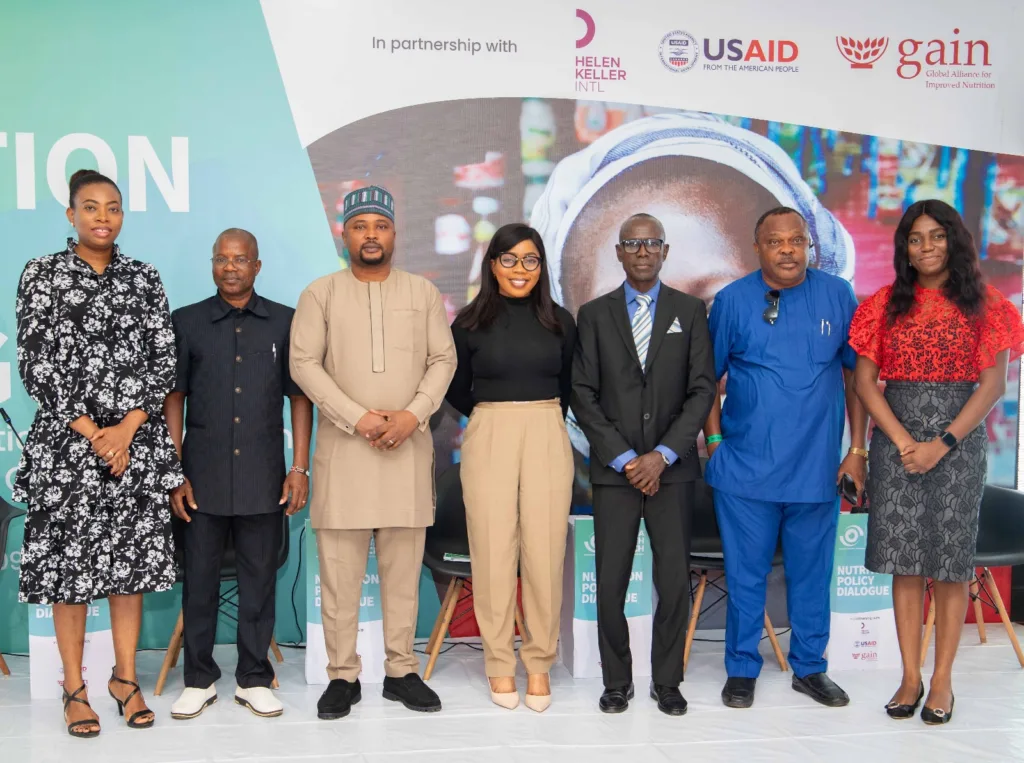The Nigeria Health Watch, United Nations Children’s Fund (UNICEF), United States Agency for International Development (USAID), and other critical stakeholders in the health space have called for urgent actions to address the negative consequences of climate change on nutrition and food crisis in the country.
They stated that there is need for a holistic and multi-sectoral collaboration at the national, state and local government levels, in order to ensure that the country is not plunged into food insecurity, which will eventually lead to low feeding and health outcomes for Nigerians, especially children.
Lafiya360 reports that the stakeholders feared that the rate of desert encroachment in the north is alarming, and is gradually reducing the ability of farmers to provide important food items for the people. Also, the increasing population is a challenge.
Speaking during a nutrition policy dialogue in Abuja, with the theme: strengthening nutrition outcomes in the face of climate change, the Managing Director of the Nigeria Health Watch, Vivianne Ihekweazu reminded stakeholders of the urgent need to ramp up efforts in climate change, as it has the capacity to derail the country’s efforts to achieve the Sustainable Development Goals (SDGs) by 2030, particularly achieving zero hunger, and health and wellbeing for all.
She said, “We are aware of the impact of climate change, and its impact on health and wellbeing, and nutrition outcomes, especially for children. Hence, we must work collaboratively to tackle this rising menace head-on.
“The nexus between climate change and nutrition is a formidable reality and hampers our ability to provide sustainable food, which affects our children’s access to nutritious diet. It also leads to inflation, as it destroys farm produce and livestock.
“Stakeholders, including the government at the national and sub-national levels, private sector, farmers, and others play a very important role in shaping the trajectory of the nation’s climate and food security.”
In his remarks,the Director and Head of Prevention and Control of Micronutrient Deficiency, Federal Ministry of Health, Chief Uruakpa John, added, “Climate change increases the vector borne diseases. Unusual weather conditions destroy food and vegetables and jeopardize food security. It also reduces access to food, thereby increasing the prices of food.
“Concerning what the government is doing: Nigeria is a signatory to several declarations on climate change, both locally and internationally.
“We commenced implementation of policies. In 2021, Nigeria passed the climate change Act, which seeks to achieve low greenhouse emission to reach net zero by 2050, and by 2070, we will have zero gas emission.
“The mission is to strengthen national initiative involving all stakeholders, including the poor and all vulnerable groups, in order to address diet related non-communicable diseases, obesity, malnutrition, and others.
“The government must ensure nutrition is addressed in climate resilient development and national climate change processes, plans and programmes.
“We must also Increase policy coherence and multidisciplinary collaboration at local, regional, national and international levels to enhance food chain sustainability and local access to adequate nutrition, while promoting the rights of the vulnerable people to essential livelihood resources, including land rights and access to or protection of fishing grounds.”
UNICEF Chief of water, sanitation and hygiene (WASH), Dr. Jane Bevan added, “We cannot address climate change, and its effect on health without addressing sanitation. Only 8 per cent Nigerians practice hand-washing, while over 90 per cent know about hand-washing.
“There is the children’s climate risk index. Nigeria came second worst in this report as one of highest risk countries in the world for children in terms of climate. It is a big risk for children. It affects agriculture, water supply and nutrition.
“If people are made more aware about the issues of climate change, and know how it affects them and their communities, then they will work towards that and demand from the government that more is done about it.
“We also need to sensitize the local governments about the issues of climate change. While there is a need for investment, we need more advocacy.”


